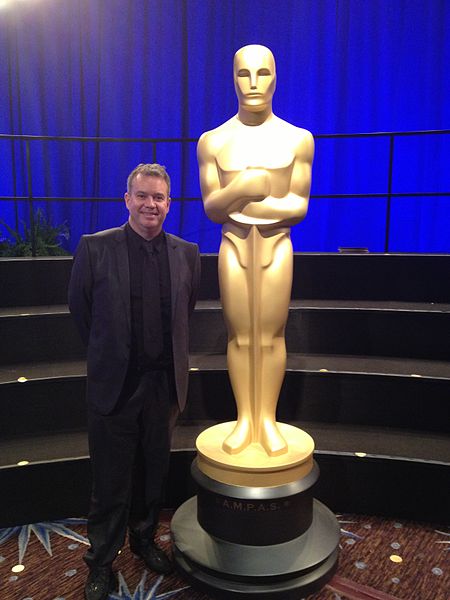
News
Cambridge Residents Slam Council Proposal to Delay Bike Lane Construction

News
‘Gender-Affirming Slay Fest’: Harvard College QSA Hosts Annual Queer Prom

News
‘Not Being Nerds’: Harvard Students Dance to Tinashe at Yardfest

News
Wrongful Death Trial Against CAMHS Employee Over 2015 Student Suicide To Begin Tuesday

News
Cornel West, Harvard Affiliates Call for University to Divest from ‘Israeli Apartheid’ at Rally
Oscars React: Politics, Meet Hollywood
Barring, of course, a tumultuous surprise ending with a Best Picture mix-up, the annual highlight of Hollywood’s year played out with its usual champagne-infused, designer-label glitz. On Sunday night, the 89th Academy Awards celebrated the film industry’s best and brightest. And also “Suicide Squad.”
The night kicked off with a win for Mahershala Ali, who took home Best Supporting Actor for his performance in “Moonlight,” becoming the first Muslim actor to win an Oscar. Ali’s early victory foreshadowed success, not only for “Moonlight,” but also for diversity and solidarity against discrimination.
In fact, the Oscars, along with the other prizes this awards season, became an intersection between politics and arts. In the midst of a divisive, contentious political climate, political acceptance speeches are now par for the course. These days, accepting an award without asserting at least a vague political declaration seems oblivious, or at worst, willfully ignorant.
In their acceptance speech for Best Adapted Screenplay, “Moonlight” writers Barry Jenkins and Tarell Alvin McCraney advocated for “all those black and brown boys and girls and non-gender-conforming [people] who don't see themselves.” When “The Salesman” won Best Foreign Language Film, Iranian astronaut Anousheh Ansari read a boycott statement from director Asghar Farhadi, in protest of Trump’s anti-Muslim immigration policy. And Cheryl Boone, President of the Academy, delivered a statement championing the inclusion of diverse art, saying, “Tonight is proof that art has no borders, art has no single language, and art does not belong to a single faith.”
It was a welcome departure from last year’s #OscarsSoWhite, but it would be inaccurate to credit Sunday night’s Oscars with entirely subverting the privilege that governs the film industry. The nominations for Best Director overlooked female filmmakers entirely, for one. Another disappointing moment occurred when Brie Larson, who won last year’s Best Leading Actress for her role as a sexual assault survivor in “Room,” presented the Oscar for Best Leading Actor to Casey Affleck, who faces multiple allegations of sexual harassment. Larson, a sexual assault advocate, was put in a similar position only weeks ago at the Golden Globes, where she presented Affleck with another one of cinema’s highest honors.
Both times, Larson opened the envelope, then proceeded to hand Affleck his statuette, stone-faced. When Affleck cited his competitor, Denzel Washington, as inspiration, Washington looked similarly unimpressed.
Though host Jimmy Kimmel took several superficial jabs at Donald Trump, including several snarky tweets at the President, he bolstered the President’s exclusionary rhetoric through a handful of insensitive and poorly-received jokes. In one segment, Kimmel brought in a bus full of T-shirt clad, selfie-stick-equipped tourists (of questionable authenticity) under the pretense of bringing them to an Oscars exhibit.
One Asian tourist couple, recently married, shook Meryl Streep’s hand.
Kimmel thrust the mic to the woman. “What’s your name?”
“Yulree,” she answered, and with the practiced air of someone who explains the pronunciation of her name on a regular basis, added, “It rhymes with ‘jewelry.’”
“Well, I know it rhymes with jewelry,” Kimmel said, “Wow, that’s some name.”
Kimmel made a face, then turned to her husband. “Oh. And what’s your name?”
“Patrick,” he said.
“Patrick,” Kimmel repeated. “See, that’s a name!”
We get it, Jimmy: their names are not like yours. In the midst of a celebration of artistic diversity, during an already self-indulgent segment, a white man pointed out the “otherness” of foreign names.
Clearly, the Oscars, and the industry as a whole, still have a ways to go before they can be fairly considered diverse, let alone equal or inclusive. Art may lack borders, but the way we celebrate it suggests that some barriers to entry will take years to dismantle.
Until then: “Patrick” might be a real name by Kimmel’s standards—but that night, one statuette was engraved with “Mahershala.”
—Staff writer Caroline A. Tsai can be reached at caroline.tsai@thecrimson.com. Follow her on Twitter @carolinetsai3.
For more Arts Blog coverage, click here.
For more Crimson Arts content, click here.
Want to keep up with breaking news? Subscribe to our email newsletter.

